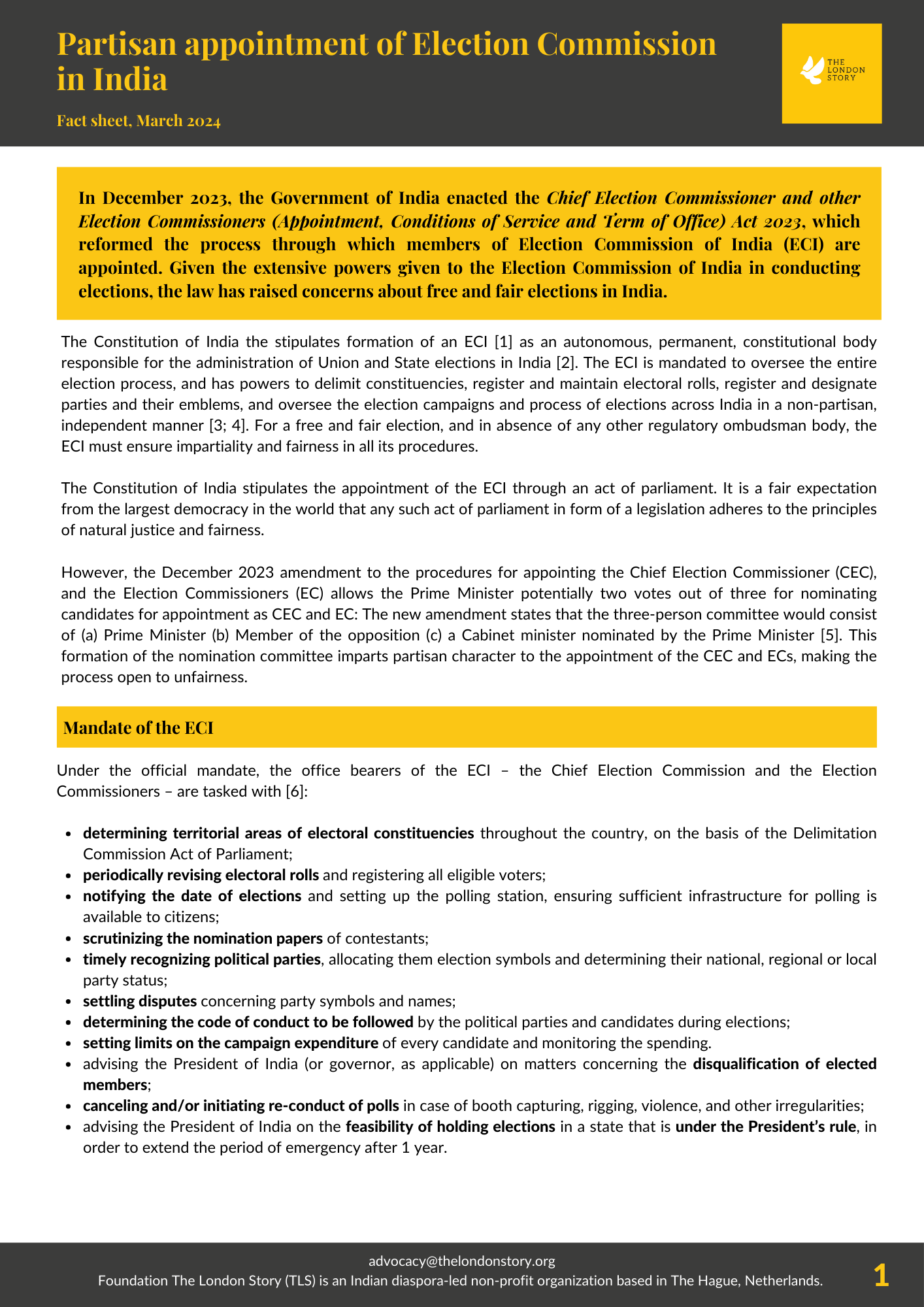In December 2023, the Government of India enacted the Chief Election Commissioner and other Election Commissioners (Appointment, Conditions of Service and Term of Office) Act 2023, which reformed the process through which members of Election Commission of India (ECI) are appointed. Given the extensive powers given to the Election Commission of India in conducting elections, the law has raised concerns about the free and fair elections in India.
The Constitution of India stipulates the appointment of the ECI through an act of parliament. It is a fair expectation from the largest democracy in the world that any such act of parliament in form of a legislation adheres to the principles of natural justice and fairness.
However, the December 2023 amendment to the procedures for appointing the Chief Election Commissioner (CEC), and the Election Commissioners (EC) allows the Prime Minister potentially two votes out of three for nominating candidates for appointment as CEC and EC: The new amendment states that the three-person committee would consist of (a) Prime Minister (b) Member of the opposition (c) a Cabinet minister nominated by the Prime Minister. This formation of the nomination committee imparts partisan character to the appointment of the CEC and ECs, making the process open to unfairness.



